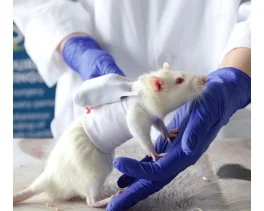Authors
R Fusco, R Siracusa, AF Peritore, E Gugliandolo et al
Lab
Department of Chemical, Biological, Pharmaceutical and Environmental Sciences, University of Messina, Messina, Italy.
Journal
Antioxidents
Abstract
Osteoarthritis is a progressive joint disease characterized by the activation of different molecular mediators, including proinflammatory cytokines, reactive oxygen species, metalloproteinases and nociceptive mediators. Anacardium occidentale L. is a medicinal plant with anti-oxidative and anti-inflammatory properties. In this study we evaluate the effects of cashew nuts (from Anacardium occidentale L.) oral administration on an experimental model of painful degenerative joint disease. Monosodium iodoacetate (MIA) was intraarticularly injected, and cashew nuts were orally administered three times per week for 21 days, starting the third day after MIA injection. Nociception was evaluated by a Von Frey filament test, and motor function by walking track analysis at 3, 7, 14 and 21 days after osteoarthritis. Histological and biochemical alteration were examined at the end of the experiment. Cashew nuts administration reduced pain-like behavior and showed antioxidant activities, restoring biochemical serum parameters: glutathione (GSH), catalase (CAT) levels, glutathione peroxidase (GPx) activity and lipid peroxidation. Moreover, cashew nuts ameliorated radiographic and histological alteration, resulting in decreased cartilage degradation, pro-inflammatory cytokines and metalloproteinases levels and mast cells recruitment. Our results demonstrated that the oral assumption of cashew nuts counteracts the inflammatory and oxidative process involved in osteoarthritis.
Source :

 Douleur - Allodynie/Hyperalgésie Thermique
Douleur - Allodynie/Hyperalgésie Thermique Douleur - Spontanée - Déficit de Posture
Douleur - Spontanée - Déficit de Posture Douleur - Allodynie/Hyperalgésie Mécanique
Douleur - Allodynie/Hyperalgésie Mécanique Apprentissage/Mémoire - Attention - Addiction
Apprentissage/Mémoire - Attention - Addiction Physiologie & Recherche Respiratoire
Physiologie & Recherche Respiratoire




































 Douleur
Douleur Système Nerveux Central (SNC)
Système Nerveux Central (SNC)  Neurodégénérescence
Neurodégénérescence Système sensoriel
Système sensoriel Système moteur
Système moteur Troubles de l'humeur
Troubles de l'humeur Autres pathologies
Autres pathologies Système musculaire
Système musculaire Articulations
Articulations Métabolisme
Métabolisme Thématiques transversales
Thématiques transversales Congrès & Meetings
Congrès & Meetings 
